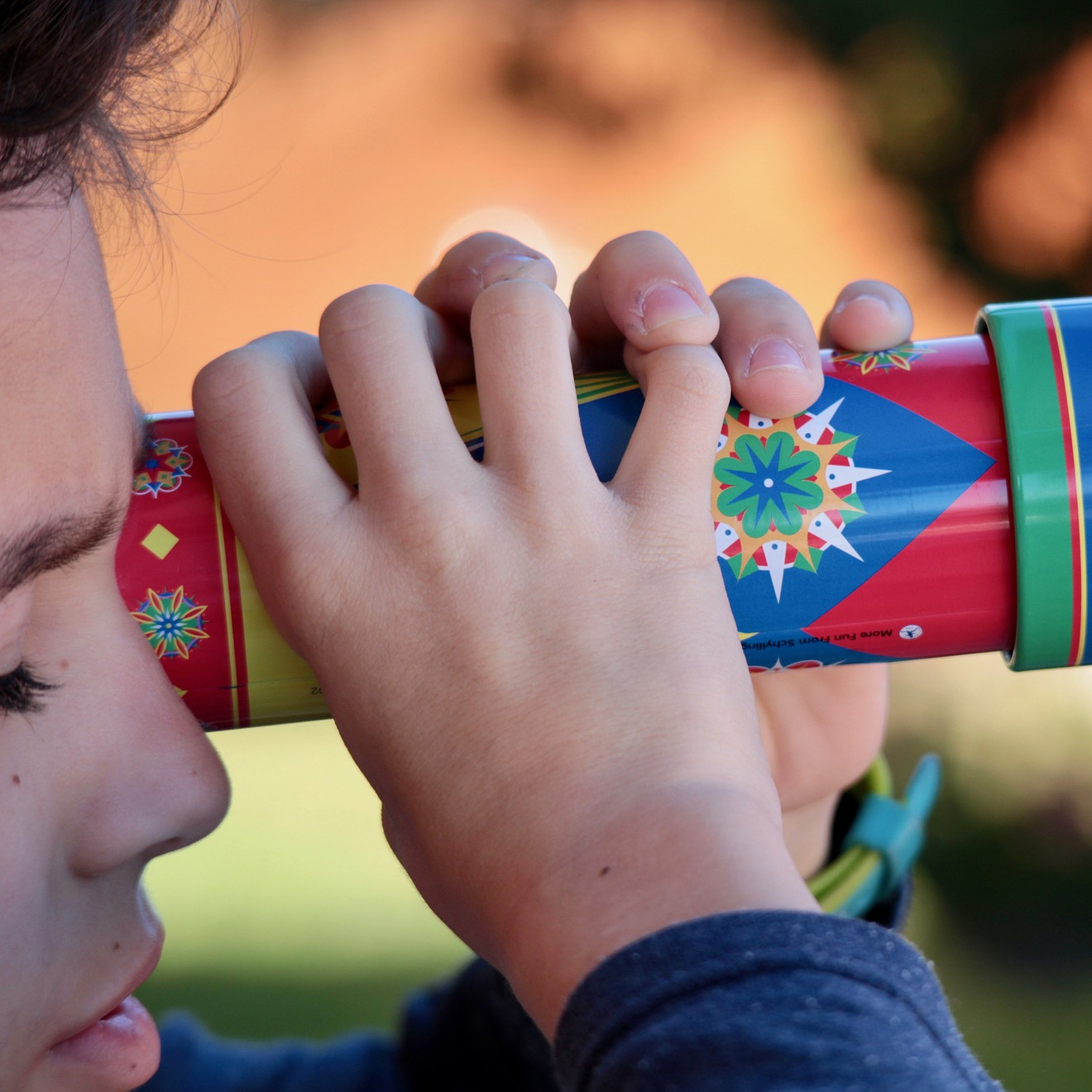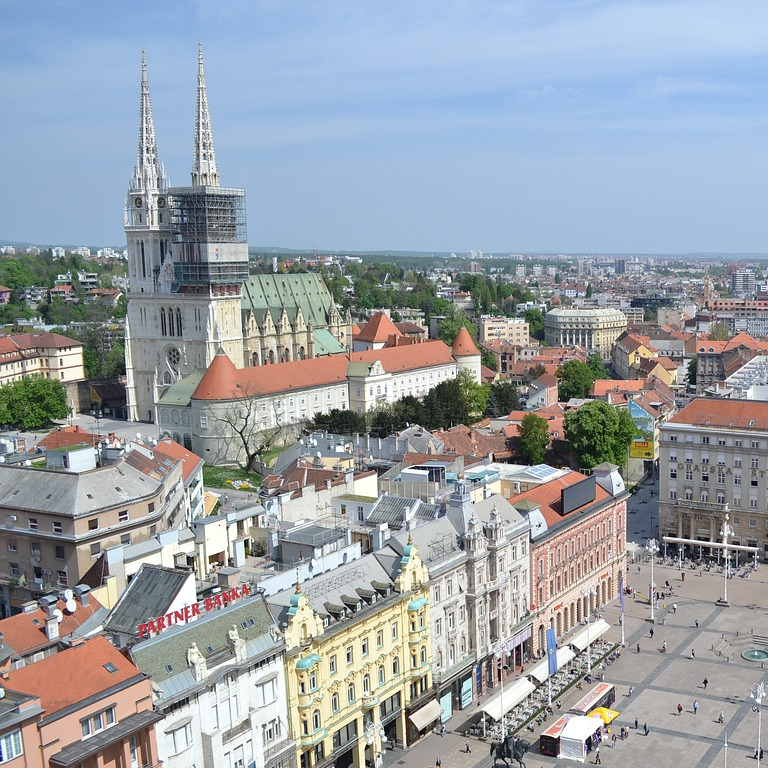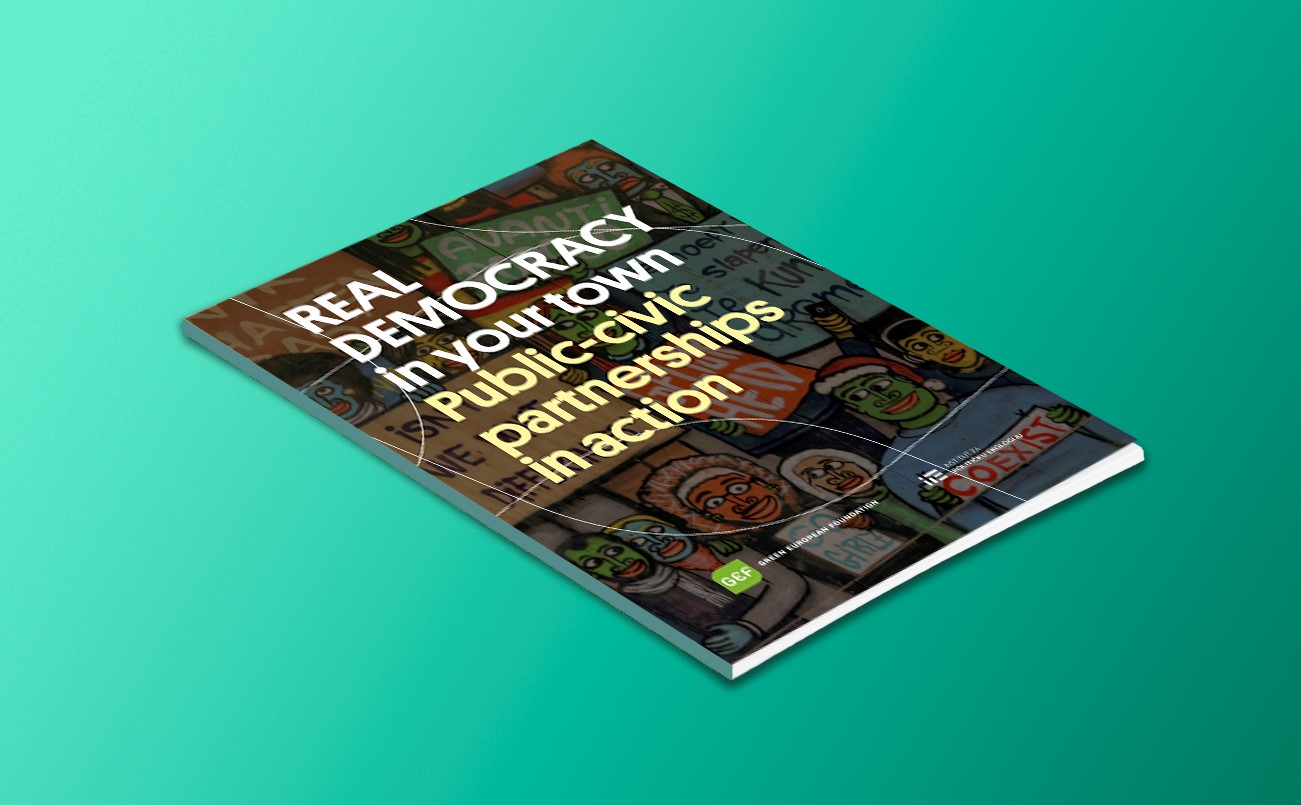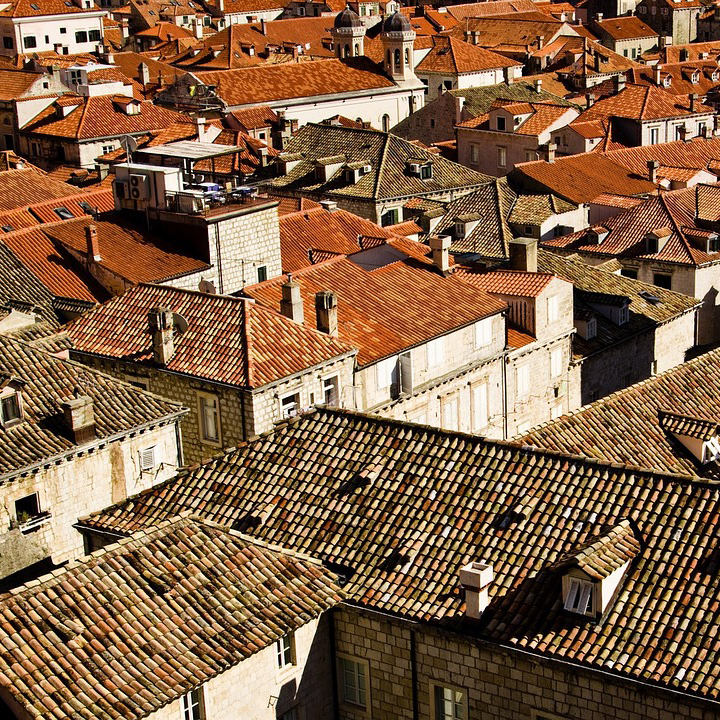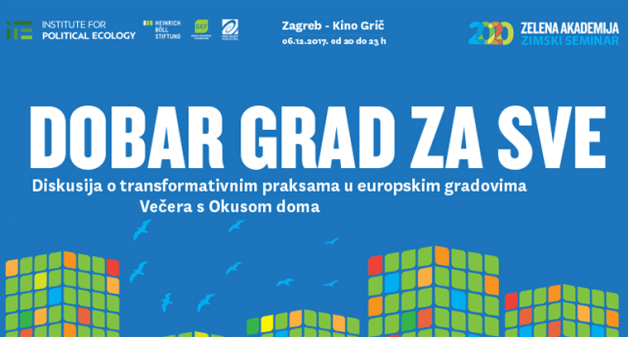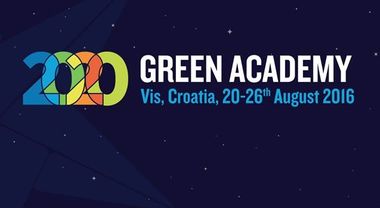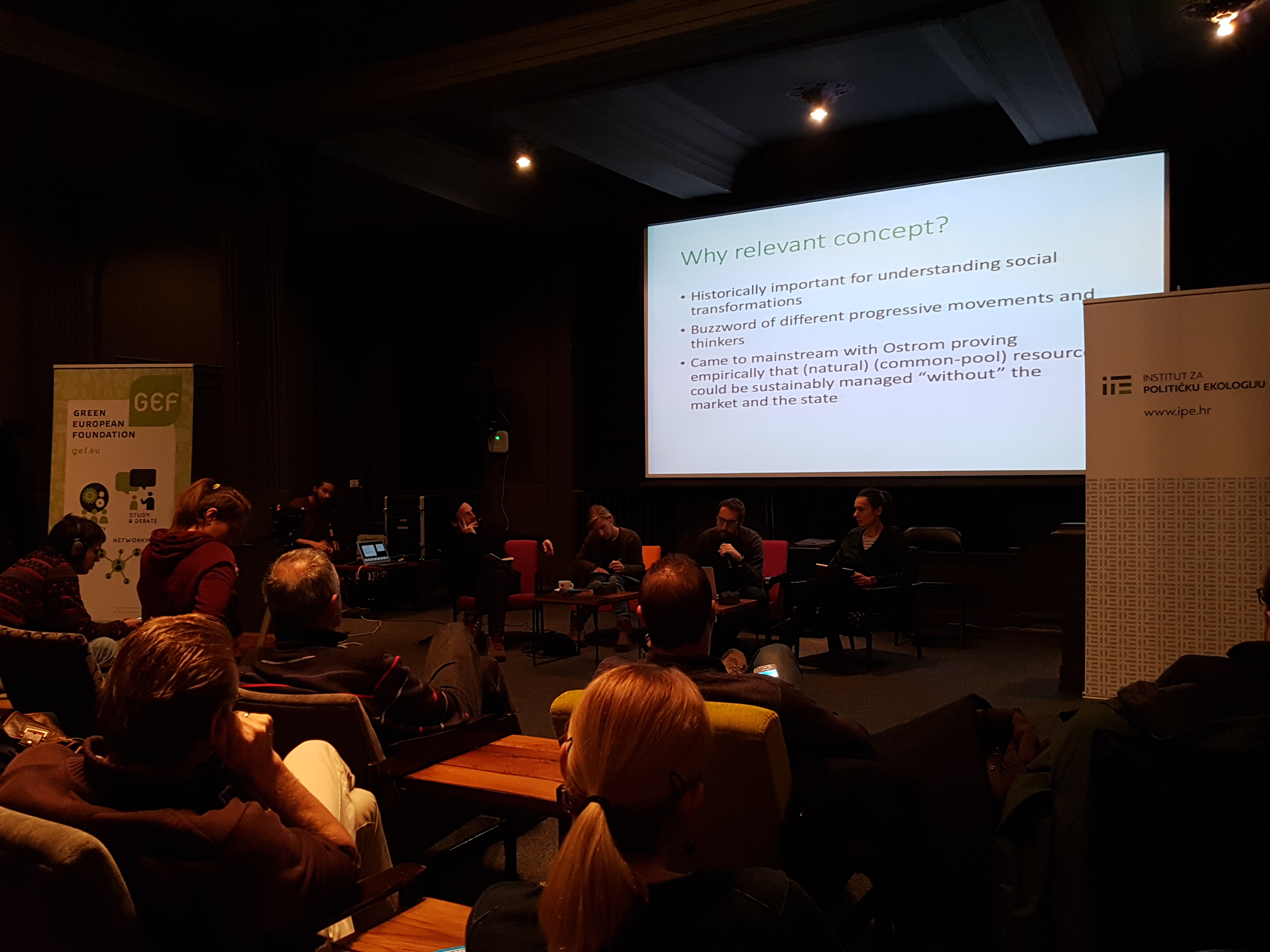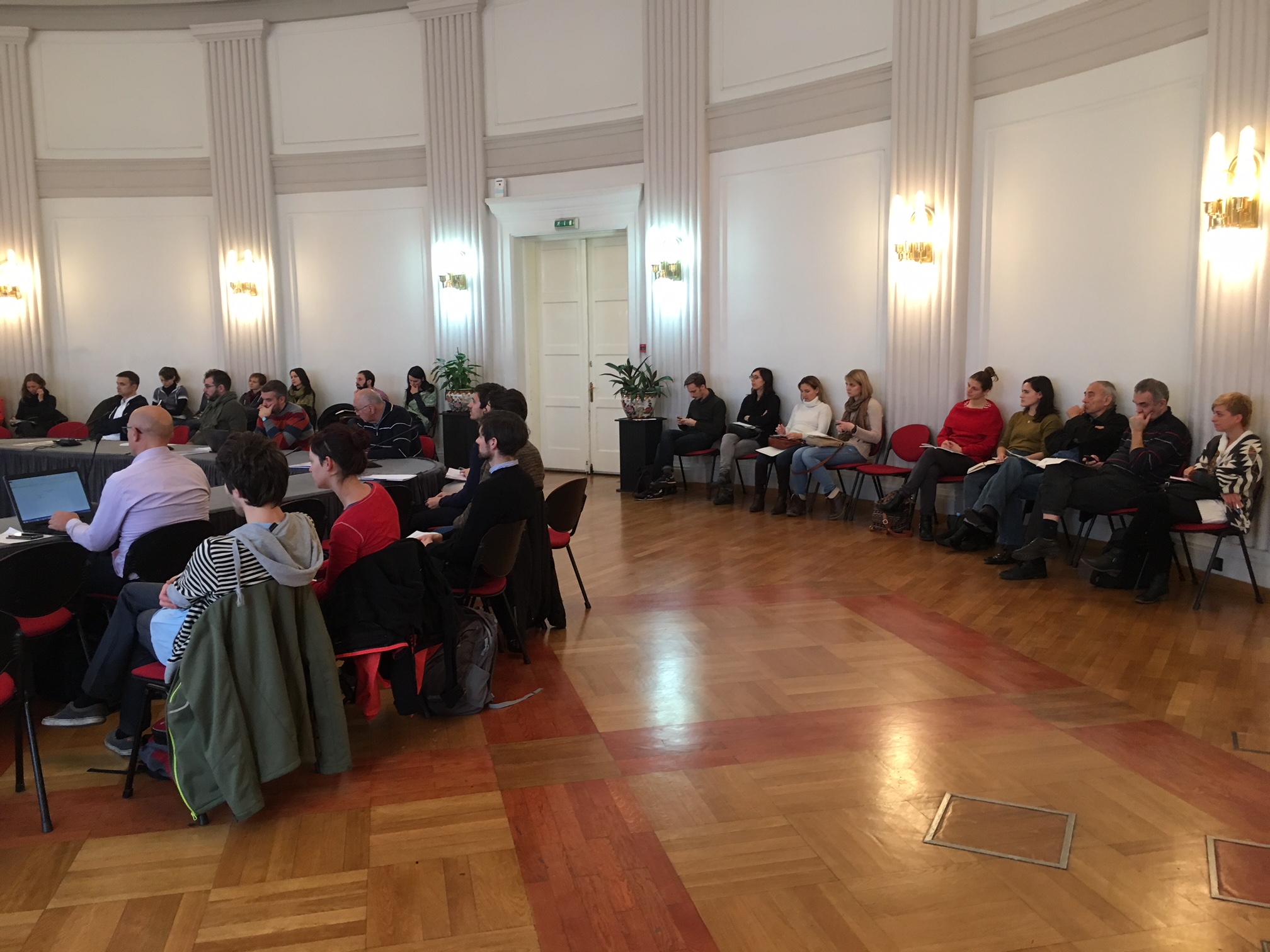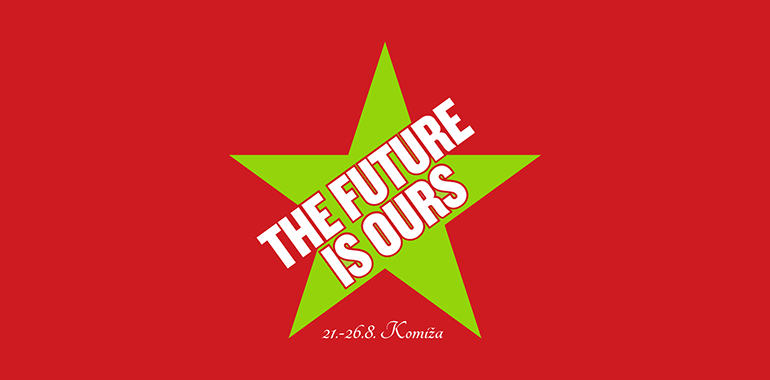
About the event
The Green European Foundation and Institute for Political Ecology are organising the 10th edition of the Green Academy.
Under the title “The Future is Ours,” this summer university will focus on cities and municipalities as the real changemakers and terrains for progressive political change.
The dynamic and interactive program is composed of workshops, debates and lectures designed to encourage participants to dive deeper into the municipalist world and seek solutions that can be the driving force for political change at the local level.
Speakers:
KEYNOTE SPEAKERS:
- Kathleen Lynch, University College Dublin
- Andreas Malm, Lund University
- Tine De Moor, Utrecht University
and many more…
Programme:
FRIDAY 21st OF AUGUST
12:00 – 14:00 ARRIVALS AND CHECK-IN IN HOTEL BIŠEVO
17:00 – 19:30 REGISTRATION
20:00 WELCOME AND OPENING
21:00 “ADA FOR MAYORS” SCREENING
22:00 WELCOME DRINK
SATURDAY 22nd OF AUGUST
10:00 – 11:00 PROGRAM PRESENTATION
11:00 – 12:00 TOWARD GREEN INDUSTRIAL POLICY FOR THE EU
-Vladimir Cvijanović
12:00 – 14:00 THE FUTURE IS OURS – MUNICIPALISTS ON THE MOVE
Success stories from municipalists and green political movements (Lyon, Ghent, Barcelona)
17:00 – 19:30 WORKSHOPS – parallel sessions
See detailed programme here
21:00 OUR RAILWAYS – Presentation of IPE’s research on the democratisation of railways
SUNDAY 23rd OF AUGUST
10:00 – 11:00 KEYNOTE LECTURE
-Kathleen Lynch, University College Dublin
TIME FOR A NEW POLITICS: WHY AFFECTIVE JUSTICE MATTER AS A SITE OF RESISTANCE TO NEOLIBERAL CAPITALISM
11:00 – 12:00 HOW TO RECLAIM PUBLIC FUTURE THROUGH LAW
-Marija Bartl
12:00 – 14:00 THE FUTURE IS OURS – MUNICIAPALISTS ON THE MOVE
Cities Donuts – Introduction to the vision of sustainable and just cities (IPE)
17:00 – 19:30 WORKSHOPS – parallel sessions
See detailed programme here
MONDAY 24th AUGUST
10:00 – 11:00 KEYNOTE LECTURE
-Andreas Malm, Lund University
CORONA, CLIMATE AND CHRONIC EMERGENCY
11:00 – 12:00 PUBLIC OWNERSHIP IN / OF ENERGY TRANSITION – EU / UK EXPERIENCES
-Andrew Cumbers
12:00 – 14:00 THE FUTURE IS OURS – MUNICIPALISTS ON THE MOVE
-Case study – Mediterranean cities
17:00 – 19:30 WORKSHOPS – parallel session
See detailed programme here
21:00 “PUSH” SCREENING
TUESDAY 25th AUGUST
10:00 – 11:00 KEYNOTE LECTURE
-Tine De Moor, Utrecht University
COMMONS AND COLLECTIVE ACTION IN ENERGY TRANSITION
11:00 – 12:00 ESKOM TRANSFORMED: ACHIEVING A JUST TRANSITION FOR SOUTH AFRICA
-Daniel Chavez
12:00 – 14:00 THE FUTURE IS OURS – MUNICIPALISTS ON THE MOVE
-Case study – post-industrial cities
17:00 – 19:30 WORKSHOPS – parallel sessions
See detailed programme here
21:00 GREEN ACADEMY 2020 – IDEAS FOR THE FUTURE
22:00 PARTY
WEDNESDAY 26th AUGUST
DEPARTURES
Practicalities:
The event will be in Croatian and English.
Hotel accommodation and two meals per day (breakfast and dinner) is provided by the organisers. Travel costs can be reimbursed up to €250.
Given the COVID-19 pandemic, the organizers have been meeting various challenges, therefore minor changes to the program can still occur. This call is published at short notice.
Support for maximum 12 places is offered to participants from across Europe:
3 – the Balkans, Russia, Georgia, Ukraine
3 – Central and Eastern Europe
3 – Southern Europe
3 – Western and Northern Europe
Given the short deadline, the organisers ask for a short biography in English (no longer than 1 page) and a letter of interest (maximum 2000 characters) with two reference contacts (email and phone), preferably from people who have already participated in the Green Academy in previous years. Applications should be sent to ipe(at)ipe.hr by August 18, 4:00 PM CET.
The organisers reserve the right to cancel the event last-minute in case of a COVID-19 emergency. The event follows a NO REGRETS POLICY: travel can be reimbursed only after the event has taken place and once the travel documentation was provided to the organisers (in accordance with the guidelines provided prior to the event by IPE).
The organisers will ensure basic epidemiological standards are met during the event, however also bear in mind the general COVID-19 guidelines that need to be respected outside and beyond the conference, for everybody’s safety and well-being.
Applicants will be informed about the outcome by August 19.
This event is organised by the Green European Foundation with the support of Institute for Political Ecology and with the financial support of the European Parliament to the Green European Foundation. The European Parliament is not responsible for the content of this event.

